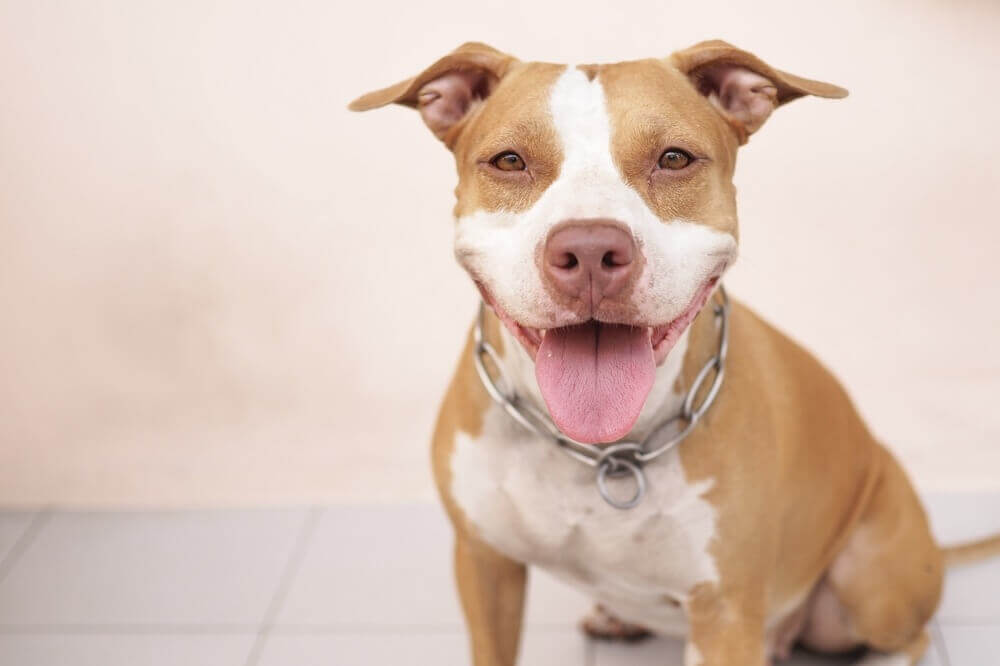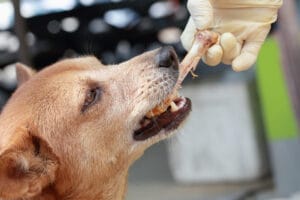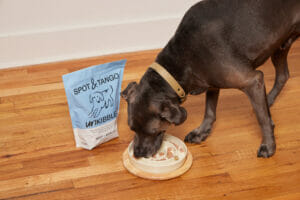If your Pitbull has been itching, scratching, biting, or licking like crazy, you’re most likely more than a little concerned about your pet.
Allergies are common among some bully breed dogs like the American Pit Bull Terrier and the American Staffordshire Terrier.
Allergic responses occur when your Pitbull’s immune system reacts abnormally to common substances in the environment. Such substances are known as allergens. Pitbull allergies cause inflammatory reactions in your pup’s body that can range from mild to life-threatening.
Determining what your Pitbull is allergic to can be challenging, and some allergies may go undiagnosed. Since pets can’t tell you that they have allergies, it’s up to you as their guardian to stay vigilant and aware of common Pitbull allergies.
Allergies can be pretty painful, and no one wants to see their pup suffering through potentially life-threatening allergic reactions.
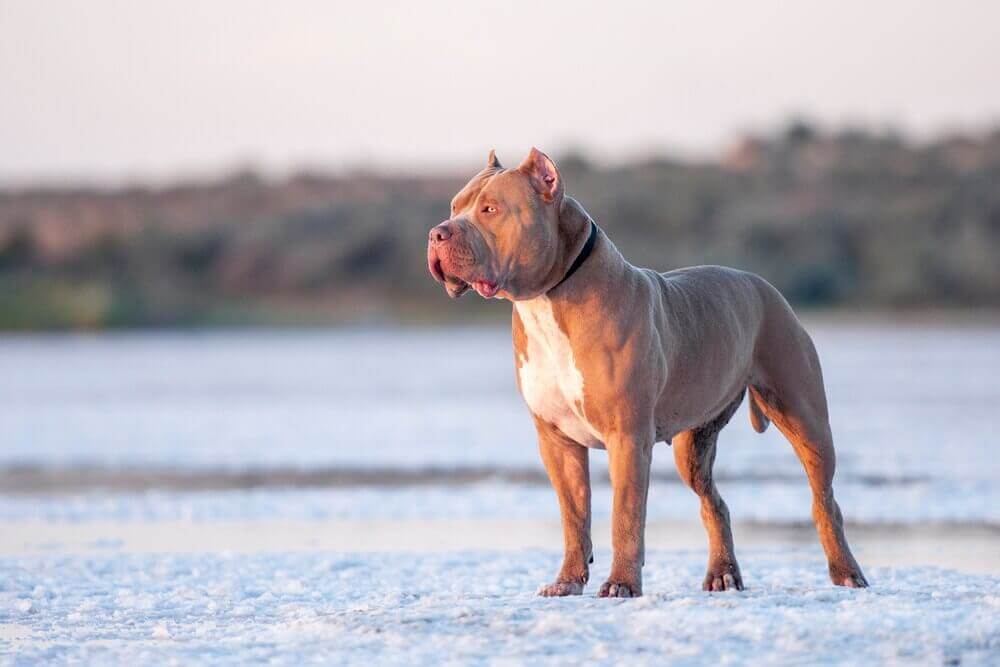
Due to their sensitivity, Pitbulls and allergies sometimes go hand in hand, and particular precaution is necessary if you have one of these dogs at home.
Regardless of how sheltered your pets are, they’re likely to experience irritation at some point. The innocent itchy spots and occasional rashes can be precursors of something more severe.
The only way to provide relief for your pup is to identify the source and know how to address it. In this article, we’ll explore what Pitbulls can be allergic to and how to protect your pet from common Pitbull skin allergies.
You’ll also learn about the best dog food for Pitbulls with allergies and find answers to some of the most frequently asked questions about this topic.
What Are Pitbulls Allergic To?
Pitbull’s allergies can be caused by various ingested, inhaled, and contact allergens. Your pet can be allergic to environmental irritants, food, grooming cleaning products, or fleas. Their skin can overreact from even a single flea bite.
The most common Pitbull allergies include:
1. Pitbull Food Allergies
Pitbull food allergies occur when your pet’s immune system reacts abnormally to something they eat. Pitbull’s are most commonly allergic to food that contains wheat, soy, and corn.
A true food allergy will result in immune responses with symptoms ranging from skin conditions (facial swelling, itchiness, and Pitbull hives) to gastrointestinal signs (diarrhea and/or vomiting) or a combination of both.
In rare cases, a severe, life-threatening allergic reaction resulting in anaphylaxis can occur.
Food sensitivities are more common than true food allergies. You might confuse a sensitivity with Pitbull food allergies, but they’re more often intolerances than allergies.
Unlike true food allergies, food sensitivities don’t involve an immune response. Your buddy can present several symptoms if they have food sensitivity.
These symptoms can include gastrointestinal signs like diarrhea or vomiting, chronic foot or ear infections, and dermatologic signs like poor skin / coat or general itchiness.
2. Pitbull Skin Allergies
Pitbull skin allergies are the most common type of allergic reaction in bully breeds. Their skin conditions and allergies can result from a variety of causes:
Genetics
Genetics plays a crucial role in the life of a dog with sensitive skin. The rare and often sought-after blue and white-coated Pitbulls are usually susceptible to skin allergies and problems.
The recessive genes responsible for the beautiful colorations and sometimes poor breeding practices make the blue-nosed Pitbulls more likely to suffer from skin allergies than other Pitbulls.
It’s more common to see white and blue ones with a rash, red bump, or scratching their coat from some type of irritation than Pitbulls of different coat color.
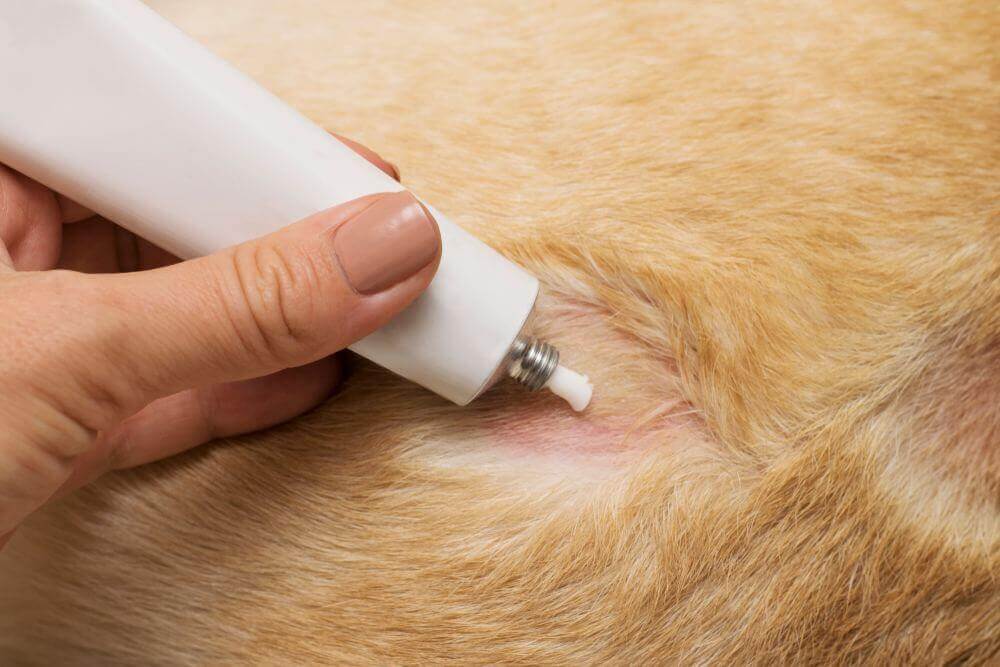
Flea Allergy Dermatitis
With flea allergy dermatitis, your Pitbull can have allergic reactions to fleabites. Some Pitbulls are allergic to flea saliva, making them highly itchy, especially at the base of the tail.
Pitbull skin allergies caused by fleas can result in inflamed, red, and scabbed skin, and you may see the flea themselves or notice signs of fleas, like flea dirt.
Flea allergy dermatitis usually requires veterinary attention because of the severe irritation left behind. Your vet will help deal with any current fleas and offer the best support for the irritation and any infection present.
Atopic Allergies and Environmental Irritants
Pitbulls don’t have a thick undercoat to protect their skin like other breeds. This gives the animal sensitive skin that’s easily affected by irritants in the environment.
Your dog can come into contact with irritants every day. These include grass and seasonal allergens like pollen they can pick up on a walk or in your backyard.
Mold and dust can also cause atopic allergic reactions or atopic dermatitis. In most cases, you’ll notice your Pitbull itching at certain times of the year. Commonly affected areas include the ear and paws.
Other areas that can be affected include the muzzle, ankle, wrists, groin, underarms, between the toes, or around the eyes.
Zinc Deficiency
These dogs are highly susceptible to developing zinc responsive dermatosis. It results from the body’s inability to absorb zinc properly and is most often seen in large breeds. It can also occur if your pal doesn’t get enough zinc in its diet.
Your Pitbull may experience fur loss, dry skin, or a dull coat. Flaking and hair loss around the mouth are common and cause a typical pattern that’s easily identified by professionals.
You may also see lesions in your dog’s footpads, ears, and nose. If you suspect your Pitbull has zinc deficiency, it’s best to consult your vet first before adding zinc to their diet.
High quantities of zinc can be toxic and potentially fatal to your Pitbull. Finding dog food that contains zinc as part of the ingredients and then serving in the correct portions is a good way to get your Pitbull just the right amount of zinc.
You should note that all skin allergies pose the risk of secondary infection. The more your Pitbull scratches, licks, and bites at their skin, the greater the risk of opening up the skin to bacterial and yeast infections that will require treatment.
How To Protect Your Pitbull From Skin Allergies
The best way to protect your Pitbull from skin allergies is to avoid the cause and allergen, but this may not always be possible.
Here are some easy to implement options you can try out:
· Diet Change
The best way to prevent Pitbull allergies caused by food is to switch up the diet. A good choice is our own range of Spot & Tango recipes, which has a reputation for being excellent for pets with allergies.
Food allergies in dogs are diagnosed through an elimination diet. It involves feeding your Pitbull a new food they haven’t eaten before for 6-8 weeks to see if the allergy symptoms resolve and don’t return.
Feeding a raw unprocessed diet and adding a fish oil supplement can help boost your Pitbull’s immune system, skin, coat, and overall health.
It will also have fewer ingredients which means fewer chances of something upsetting your Pitbull’s system.
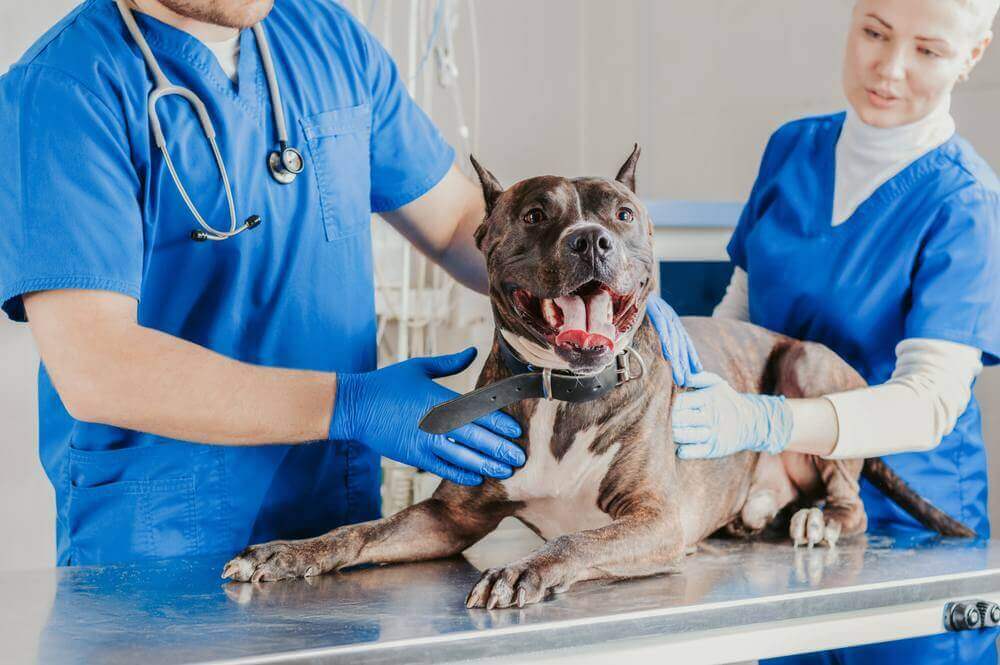
· Natural Remedies
Natural remedies are appropriate prevention and treatment options if your Pitbull has already developed a skin condition.
Coconut oil is an effective and low-cost solution you can put on affected areas. It has antifungal properties and is an excellent moisturizer for your pup’s dry skin. It can help improve your dog’s skin in a couple of weeks.
· Eliminate Fleas and Ticks
You can prevent Pitbull allergies caused by parasites like fleas, mange, and ticks by eliminating them with flea medication, a medicated shampoo, or dips.
Regular grooming and wiping your dog down can also help prevent any infestations.
· Consult Your Vet
You can get guidance on the best preventive and treatment measures for your Pitbull from your vet.
They can also quickly diagnose any issues you’re unaware of and provide the best prescriptions according to your dog’s profile.
What Is The Best Dog Food For Pitbulls With Allergies?
The best food for Pitbulls with skin allergies or food allergies should have natural ingredients with no additives or fillers.
A limited ingredients recipe or formula makes it easy to narrow down potential allergens and gives you more control over what your pup is eating. Allergy-friendly protein sources are also a great option.

Spot and Tango make it easy for you to get the best food for Pitbulls with skin allergies or food allergies. All our meals can be personalized with the meal plan selection, to your Pitbull’s unique profile with allergy-friendly options that are gluten-free and non-GMO.
Our meals are made with fresh, human-grade, natural ingredients with no additives or fillers that cause allergic reactions. All of our recipes are designed by vet nutritionists with sensitivities and allergies in mind.
Frequently Asked Questions About Pitbull Allergies
What Are The Best Non Allergic Protein Sources For Pitbulls?
The best non-allergic protein sources for Pitbulls include potato, duck, salmon, lamb, and turkey. You will find all the best hypoallergenic ingredients in Spot & Tango dog food.
How Fresh Food Can Help?
Fresh food ensures that you’re not feeding your Pitbull anything artificial that might cause a reaction. Fresh food doesn’t contain any preservatives, additives, or fillers which are common allergens.
This is where Spot & Tango comes in, with recipes that include fresh human-grade ingredients cooked to perfection. There are no additives, preservatives, or fillers included in our meals.
What Are Pitbull Hives?
Pitbull hives are a common skin reaction to allergens that produces raised, red bumps that cause intense itching. It’s also known as urticaria, and it can disappear spontaneously on its own.
However, if it persists, pitbull skin bumps allergy treatment can range from natural remedies like colloidal oatmeal and essential oils to antihistamines like Zyrtec and Benadryl.
Final Thoughts
One of the most loving dog breeds out there, Pitbulls are also prone to allergies. Most of these allergies are easily treatable, so just pay attention to your dog’s behavior all the time.
Consult your vet immediately when you find rashes on your pet’s skin or other symptoms that you find odd. They will tell you what is best and recommend you alternatives and treatment.
If you need to adapt your dog’s diet to avoid allergenics, check out our recipes section and you will find something that fits your pet’s needs.


